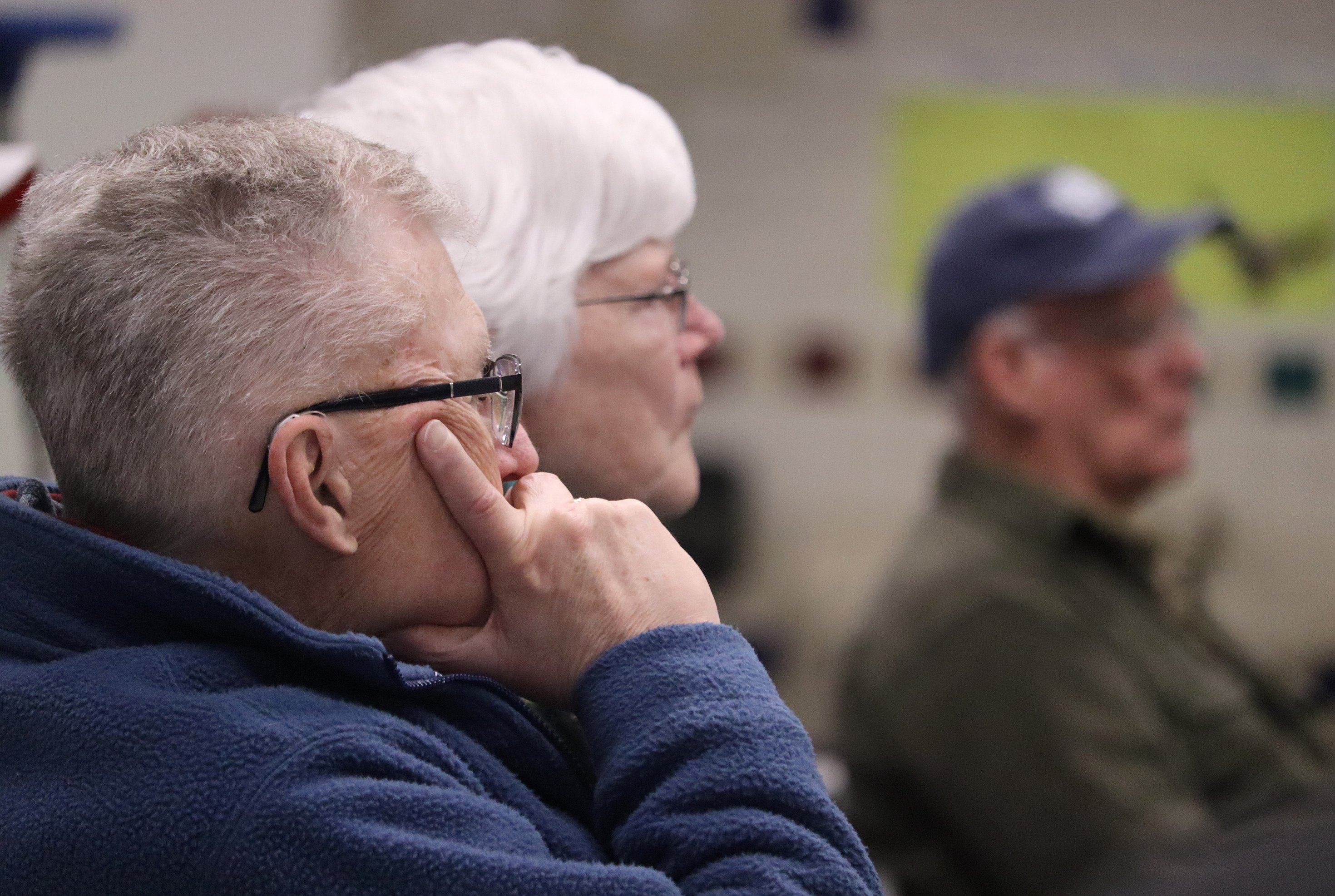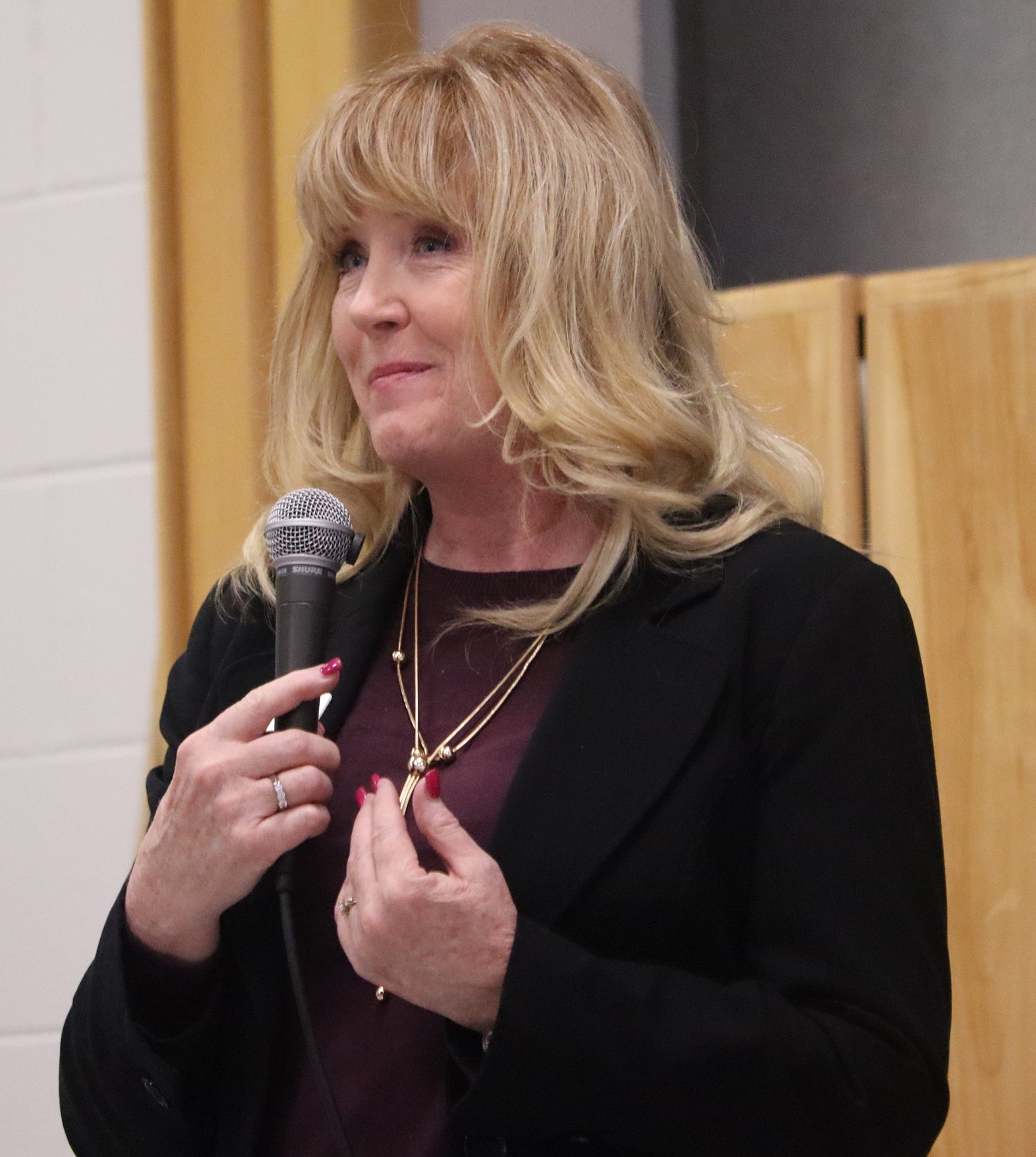Ballot battle looming in North Idaho
A movement to get an open primaries initiative on the November ballot in Idaho has collected more than 62,000 signatures.
The initiative, as well as ranked-choice voting, were outlined in two forums presented Sunday by the League of Women Voters of Kootenai County, one in Post Falls and one in Coeur d’Alene.
“We believe big improvements to the election system,” Luke Mayville said to about 25 people at Prairie View Elementary.
To get the initiative on the ballot requires 63,000 valid signatures statewide and signatures of 6% of voters in 18 of Idaho’s 35 legislative districts. The deadline is April 30. At least 50% of Idaho's voters would have to approve it.
Mayville said they hope to get 100,000 signatures to ensure they have enough valid ones.
“You can expect that this will be on the ballot,” he said.
There are two parts to the proposal.
Mayville said it would create a nonpartisan primary. Anyone would have the right to cast a ballot, regardless of party affiliation. All candidates would be on the same ballot.
“All you’re going to do is pick your favorite candidate,” Mayville said.
Idaho currently has a closed primary system, in place since 2011, which gives parties the ability to allow only those registered for their party to vote.
“The only way to vote in the Republican primary is to register as a Republican,” Mayville said.
He said that leaves Idaho 270,000 independents out in the cold.
“They are blocked from voting unless they give up their independent status,” Mayville said.
In the proposed open primary, the top four vote-getters would advance to the general election, where ranked-choice voting would come into play.
Ranked-choice voting means voters pick their favorite candidate and then, if they want, also select their second, third and fourth choices.
If no candidate gets a majority in the first round of counting, the last-place candidate is eliminated. Voters who picked the last-place candidate would have their votes redirected to their second-choice candidate and so on, until one candidate has earned a majority vote.
Mayville said tabulating the votes is more complicated, would require some new software, takes a bit longer and can seem confusing, but once given a chance, it’s easy to understand. He said other cities and states use it.
The idea is to “make sure people who are our elected officials have support from the broader community,” Mayville said. “Ranked-choice voting provides a way to guarantee the winner has broad support."
“We want all voters to have a voice,” he said.
Ed Morse, a member of North Idaho Republicans, said there is “hyper-partisanship in the country” and the interests of the people are not being represented.
He quoted President Thomas Jefferson, who said, “If I could not go to heaven but with a political party, I would decline to go.”
Morse commented on the presidential election.
“We have one presidential candidate who can’t tell the truth and we have another presidential candidate who can’t remember the truth. Is that really in the best interests of this country?” he said.
Morse said ranked-choice is the solution to partisanship. He said it would increase voter participation, input and control.
“That’s the reason why I support ranked-choice voting,” he said.
Christie Wood, in this case acting as a representative of Veterans for Idaho Voters, said there are about 150,000 veterans in Idaho and about half of them are independents.
“So all of those people who fought for democracy can’t vote unless they decide to join a party,” she said. “We don’t think that’s the spirit of America.”
Wood said Veterans for Idaho Voters will be out knocking on doors and giving public speeches on the open primary initiative.
“Voting is critical to us — that’s why we’re here,” she said.
Wood said when veterans can’t vote in a primary, “that’s just plain wrong.”
Brent Regan, chair of the Kootenai County Republican Central Committee, wrote that the open primary initiative, as proposed, would create voter confusion.
He pointed to wording of the initiative, which states: “Candidates could list any affiliation on the ballot, but would not represent political parties, and need not be associated with the party they name.”
“Candidates can say they are with one party when they are actually philosophically with a different party. That is the law they want you to approve,” Regan wrote in a recent column in The Press. “Democrats could put an “R” for Republican next to their name on the ballot even though they are affiliated with the Democrat party. They want you to approve a law that would make it legal to lie about party affiliation. Not a joke.”
Dorothy Moon, Idaho Republican Party chair, said in her speech Saturday at the Lincoln Day Dinner in Coeur d’Alene that her organization opposed ranked-choice voting.
She referred to it as an “election scheme” that would see a ballot with a lot of names and no way to audit it.
“For 250 years in this nation, it’s been one man, one vote, and it’s worked really well,” she said.





